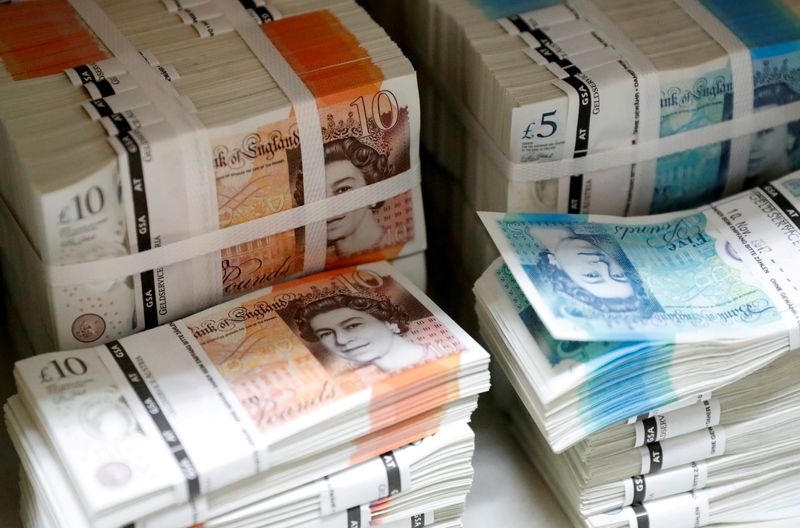LONDON (Reuters) - Sterling dipped below one-month highs on Thursday, tracking a similar move in risk-oriented currencies as sentiment weakened across financial markets and traders sought refuge in the safer dollar and yen.
The pound has risen about 3% against the dollar since late September, on the back of expectations of an imminent interest rate hike by the Bank of England.
"BoE tightening expectations have surged, with the first hike now fully priced for the November 4th (BoE) meeting", ING analysts said in a note.
A dip in September inflation is seen unlikely to stop the Bank of England from raising interest rates soon, with many executives warning about fast-rising prices during their third-quarter earnings presentations.
"We expect inflation to be higher next year than this year," Graeme Pitkethly, finance chief at consumer goods giant Unilever (LON:ULVR) told investors on Thursday.
At 1430 GMT, the pound was down 0.06%, at $1.3815 just slightly below a one-month high of $1.3834 reached on Tuesday.
Against the euro, the pound was flat at 84.25 pence.
While there is a strong consensus about the BoE being the first major central bank to raise interest rates in the post-pandemic cycle, a poll of economists by Reuters showed the first hike could come only early next year, later than markets are pricing in.
A batch of disappointing data for economic growth and employment could potentially weaken the pound as it could lead BoE policymakers to a 'wait and see' strategy and delay a decision about interest rates.
Some analysts also believe sterling's ascent in recent weeks has been slowed by post-Brexit trading fears.
On Thursday afternoon, Prime Minister Boris Johnson said the dispute between Britain and the European Union over Northern Irish trade needed to be resolved "pretty fast" because of its impact on people and businesses.
Supply chain bottlenecks, staff shortages and resurgent COVID-19 infections have also dented optimism towards Britain's economic recovery.
Britain's cases could rise to 100,000 a day according to health minister Sajid Javid, while Johnson said no further contingency measures were about to be implemented at this time.
Some positive news came on Thursday morning for the British government which will present its budget forecasts on Oct. 27.
Data showed British public borrowing fell by almost half in the first six months of the current financial year from a post-World War Two high a year earlier, when the economy faced the full force of the pandemic.

Graphic: World FX rates in 2020 http://fingfx.thomsonreuters.com/gfx/rngs/GLOBAL-CURRENCIES-PERFORMANCE/0100301V041/index.html
Graphic: Trade-weighted sterling since Brexit vote http://fingfx.thomsonreuters.com/gfx/rngs/BRITAIN-STERLING/0100310M299/index.html